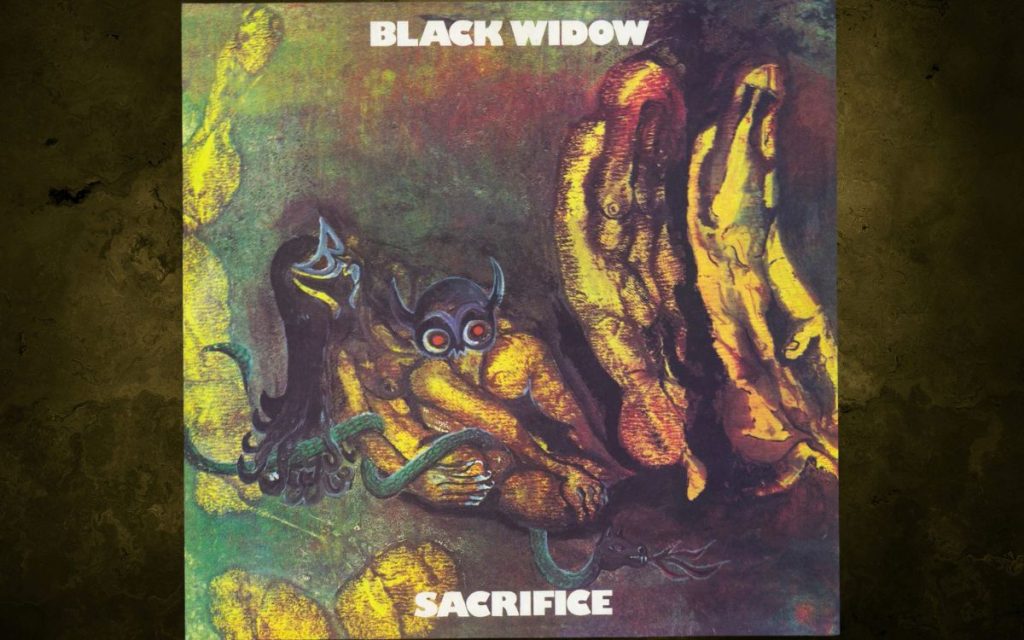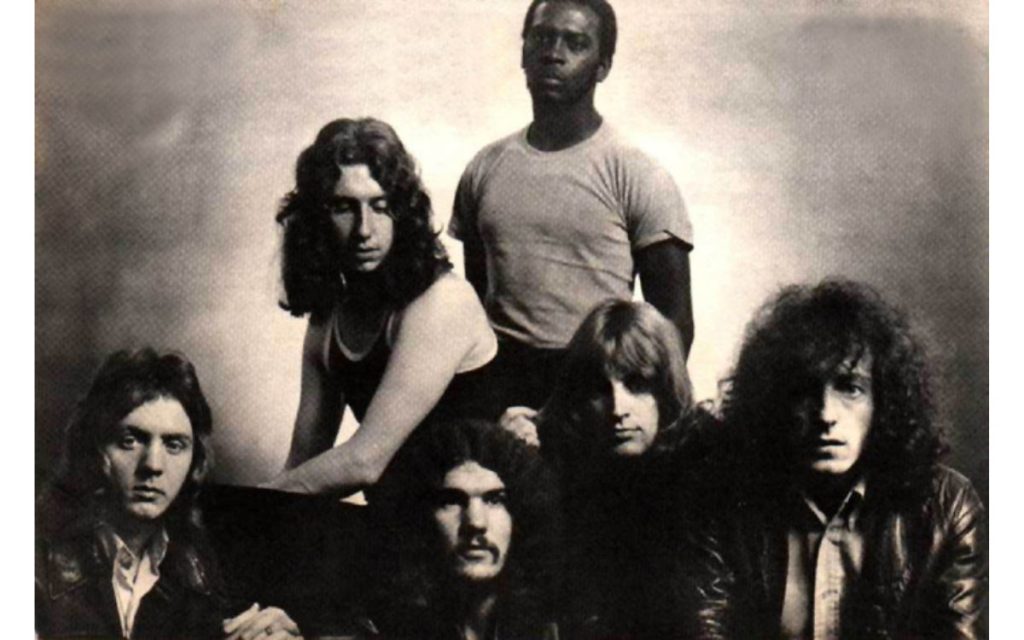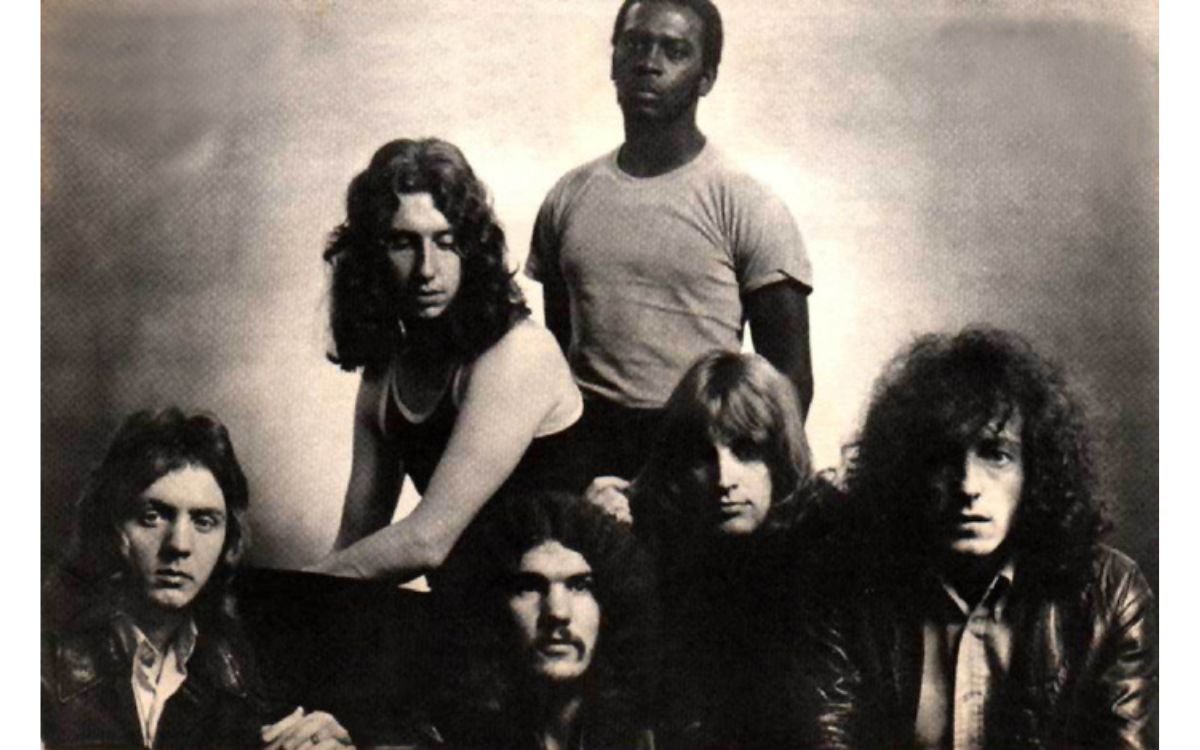Black Widow’s “Come to the Sabbat” shocked 1970s Britain with its occult themes, but the track’s haunting power may doomed them
In 1970, a Leicester-founded music band named Black Widow released a song so openly occult that the BBC refused to play it.
That song was “Come to the Sabbat”, a hypnotic chant inviting listeners to a witches’ gathering where Satan himself would appear.
More than 50 years later, it remains one of the most infamous tracks in UK rock history.
But the song didn’t make Black Widow famous. In fact, it arguably ruined their chances of mainstream success.
And at the same time, another band, Black Sabbath, was conquering the world with its own brand of dark music.
So what happened?
Come to the Sabbat, A Song Like a Spell
“Come to the Sabbat” isn’t structured like a typical rock song.
There’s no chorus, no guitar solo, no verse-chorus-verse.
Instead, it’s built around a chant:
“Come, come, come to the sabbat / Come to the sabbat, Satan’s there…”
It repeats again and again, drawing the listener in like a ritual.
Soft flutes and tribal drumming swirl around the vocals, building tension.
The lyrics are minimal but evocative:
“Let me be your guide through the mystery of the night…”
This isn’t meant to be a metaphor. It’s an absolutely clear invitation to a Satanic gathering, a sabbat where witches, spirits and the Devil himself meet under the moon.
For 1970s Britain, this was more than bold, it was a step too far.

The BBC Ban
The BBC quickly banned the track from airplay, citing its overt Satanic content.
Without radio exposure or TV support, the single failed to chart, despite strong interest from underground audiences.
Clive Jones, the band’s flautist and lyricist, later said: “We were tipped to be bigger than Black Sabbath, but once the BBC banned us, no one would touch us.”
That was the crux of the problem.
While “Come to the Sabbat” was musically unique and theatrically bold, its directness scared off gatekeepers.
Black Widow: Theatre, Ritual and Real Occultism
Black Widow wasn’t just interested in singing about dark themes, they performed them.
Live shows featured robed priests, altars, mock human sacrifice and nude “priestesses”.
It was full occult theatre, years before Alice Cooper or Ghost made it popular.
They took influence from Aleister Crowley, ceremonial magick and pagan folklore.
Their entire debut album, Sacrifice, followed a narrative of a young man drawn into the occult.
This wasn’t shock rock. It was ritual rock, and it was taken seriously by both fans and critics.
But the industry didn’t know what to do with it.

Why Black Sabbath Succeeded and Black Widow Didn’t
While Black Widow were being banned, Black Sabbath were being promoted.
Their debut album came out the same year, with a similarly grim atmosphere and a song literally called “Black Sabbath”.
But here’s the key difference: Sabbath’s music warned about evil.
Songs like “Black Sabbath” and “The Wizard” felt like cautionary tales – fearful, not inviting.
Sabbath were also better managed, under Patrick Meehan, and signed to Vertigo/Warner Bros.
They had strong label support, professional PR and global touring.
They were dark, but never crossed the line into ritualistic theatre.
Black Widow? Signed to CBS, lacking strong management, and tied to live shows involving mock sacrifices.
Once the BBC banned “Come to the Sabbat”, CBS pulled back and the band never recovered.
Legacy of Come to the Sabbat
In the years since, “Come to the Sabbat” has become a cult classic—appearing on horror compilations, Halloween playlists and sampled in underground music.
It is now seen as a precursor to doom metal, goth and theatrical rock.
Yet for Black Widow, the song was both their signature and their curse.
It put them on the map, then kept them locked in a corner of it—forever seen as “the Satanic band the BBC banned”.
Black Sabbath flirted with darkness and became legends.
Black Widow embraced it and were left in the shadows.
But if you listen closely to “Come to the Sabbat”, you’ll hear something Sabbath never offered: a real spell, set to music.
It’s haunting. It’s hypnotic.
And once you’ve heard it, it lingers—like an echo from a forgotten rite.
Come to the sabbat.
Satan’s there.
Have you heard Come to the Sabbat? Does it still feel dangerous today? Let us know in the comments or join the discussion in our Facebook group.




Back in 1981 my band,Cardboard Cowboy were signed to Carlin music.They guy who signed us was Kip Trevor, lead vocalist with Black Widow.A very nice chap.We talked about the Paranormal on many occasions. Even so the bands stage set continued the show stopping sacrifice, most of them were serious about the reality of the supernatural.They had contact with Alex Sanders,the King of British wicca.Kip guided us through our career, but it was the time of the new romantics. We were from the Widow and Sabbath stable and were out of time.Sacrifice is a great abulm, but Sabbath were perhaps the more lounder.